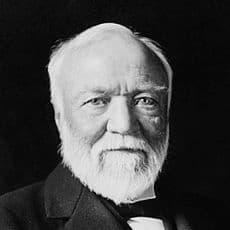70 Quotes
"The first lesson of drown-proofing is paradoxical: the more you struggle to keep your head above water, the more likely you are to sink."
— Mark Manson
Why the Best Things in Life Are All Backwards"The trick to drown-proofing is to actually let yourself sink to the bottom of the pool. From there, you lightly push yourself off the pool floor and let your momentum carry you back to the surface."
— Mark Manson
Why the Best Things in Life Are All Backwards"The second lesson of drown-proofing is a bit more obvious, but also paradoxical: the more you panic, the more oxygen you will burn and the more likely you are to fall unconscious and drown."
— Mark Manson
Why the Best Things in Life Are All Backwards"More than a test of physical will, drown-proofing is a test of each cadet’s emotional self-control in situations of extreme danger."
— Mark Manson
Why the Best Things in Life Are All Backwards"This skill—the ability to let go of control when one wants it most—is one of the most important skills anyone can develop."
— Mark Manson
Why the Best Things in Life Are All Backwards"Most activities in life do not operate along the linear effort/reward curve because most activities in life are not basic nor mindless. Most activities are complex, mentally and/or emotionally taxing, and require adaptation."
— Mark Manson
Why the Best Things in Life Are All Backwards"studies on work productivity show that we’re really only productive for the first four to five hours of each day."
— Mark Manson
Why the Best Things in Life Are All Backwards"The inverted curve is the bizarro “Twilight Zone” curve, where effort and reward have a negative correlation—that is, the more effort you put into doing something, the more you will fail to do it."
— Mark Manson
Why the Best Things in Life Are All Backwards"when the action becomes purely psychological—an experience that exists solely within our own consciousness—the relationship between effort and reward becomes inverted."
— Mark Manson
Why the Best Things in Life Are All Backwards"Aldous Huxley once wrote, “The harder we try with the conscious will to do something, the less we shall succeed. Proficiency and results come only to those who have learned the paradoxical art of doing and not doing, or combining relaxation with activity.”"
— Mark Manson
Why the Best Things in Life Are All Backwards"The most fundamental components of our psychology are paradoxical. This is because when we consciously try to create a state of mind, the desire for that state of mind creates a different and often opposite state of mind from the one we’re trying to create."
— Mark Manson
Why the Best Things in Life Are All Backwards"To stop chasing meaning and freedom and happiness because those only serve to move it further away from itself. To teach it to achieve what it desires by giving up what it desires. To show it how the only way to reach the surface is to let itself sink."
— Mark Manson
Why the Best Things in Life Are All Backwards"You lean into the fear and uncertainty, and just when you think you’re going to drown, just as you reach the bottom, it will launch you back to your salvation."
— Mark Manson
Why the Best Things in Life Are All Backwards"Modernism is the assumption that the world is clearly-defined and measurable."
— Mark Manson
How to Wage Philosophical Warfare"Modernists held that our understanding of reality could be infinitely improved upon through experimentation, observation, and reason."
— Mark Manson
How to Wage Philosophical Warfare"Postmodernism, on the other hand, believes that certainty is impossible. No matter how many times you observe something, you can never know if it’s entirely true, mostly because the observer is always fallible."
— Mark Manson
How to Wage Philosophical Warfare"While this all sounds like highly abstract mental masturbation, these two philosophical dispositions have actually infiltrated our day-to-day lives."
— Mark Manson
How to Wage Philosophical Warfare"Modernists believe in evidence over feelings. They see history as a series of struggles that bring humanity closer to truth."
— Mark Manson
How to Wage Philosophical Warfare"Postmodernists believe that truth is subjective, that facts are socially constructed and arbitrary, and, therefore, power is a question of which group has the biggest gun or loudest bullhorn."
— Mark Manson
How to Wage Philosophical Warfare"Postmodernists believe that people’s feelings matter more than evidence—as evidence is always corrupted by the individual narratives that present it."
— Mark Manson
How to Wage Philosophical Warfare"Modernism thrives in a slow-moving world where there are broadly held truths that everyone agrees upon. Postmodernism thrives in a fast-moving world full of uncertainty and doubt."
— Mark Manson
How to Wage Philosophical Warfare"This constant contrarian nature of the online world is the undertow that pulls us out to the postmodernist sea. In constantly being exposed to the world’s flaws and foibles, we lose faith in everything and everyone. Knowledge itself becomes politicized."
— Mark Manson
How to Wage Philosophical Warfare"Postmodern thinking radicalizes people, not because it makes them go crazy, but because it makes knowledge appear to be arbitrary and political."
— Mark Manson
How to Wage Philosophical Warfare"Postmodernism is the reason why everything seems to be becoming politicized these days, even if it shouldn’t be."
— Mark Manson
How to Wage Philosophical Warfare"In one essay, he took particular aim at the trend of irony—or what we would refer to today as snark, cynicism, or hipsterdom—the fact that it’s “cool” to say and do things that subtly undermine or mock things that are mainstream, common, or popular."
— Mark Manson
How to Wage Philosophical Warfare"This trend of deconstructing the social order for entertainment purposes was something new in the 1980s and 90s, and it worried Wallace deeply."
— Mark Manson
How to Wage Philosophical Warfare"This is because irony, entertaining as it is, serves an almost exclusively negative function. It’s critical and destructive, a ground-clearing. Irony is singularly unuseful when it comes to constructing anything to replace the hypocrisies it debunks."
— Mark Manson
How to Wage Philosophical Warfare"Postmodernism generates a sense of loneliness because it fosters distrust and distance rather than trust. Postmodernism fosters oppression because it rewards social status to those who tear down, not those who build up."
— Mark Manson
How to Wage Philosophical Warfare"Wallace finishes the essay by arguing that it’s only sincerity—that corny, “aw shucks guys!” practice of actually stating what you mean and showing that you care—that can give our lives a sense of meaning and fulfillment."
— Mark Manson
How to Wage Philosophical Warfare"What you’ll notice is that once you start drilling down into these more specific questions, memories appear out of thin air."
— Mark Manson
3 Tips to Read More Books"That’s because human memory doesn’t exist in a vacuum—it’s based on association. Most of your memories are dormant. You can’t actively access them whenever you want to. Instead, they must be unearthed by relevant events in the present."
— Mark Manson
3 Tips to Read More Books"The problem is that most of us learn to read books for school. And school conditions us to assume that we should be able to actively recall most things we read."
— Mark Manson
3 Tips to Read More Books"So, in that sense, you don’t actually need to remember all the information in each book, you simply need to remember what information is in each book."
— Mark Manson
3 Tips to Read More Books"All the stuff I write on my website, I don’t remember it, I just remember where I saw it."
— Mark Manson
3 Tips to Read More Books"Since we’ve established that our reading should be optimized for usefulness and not cramming as much crap into our brains as possible, then it follows that we shouldn’t necessarily finish every book we start reading either."
— Mark Manson
3 Tips to Read More Books"In fact, I go into new books with the attitude that they need to earn my attention, either through the quality of writing or the quality of information. I have a personal rule, if I get 10% of the way into the book and am still not enjoying it, I put it down and move on."
— Mark Manson
3 Tips to Read More Books"Similarly, if you run into a section in a book that isn’t interesting to you or that you already know a fair amount about—skip it!"
— Mark Manson
3 Tips to Read More Books"I can’t tell you how many psychology books talk about the damn “Marshmellow Study” from 1972."
— Mark Manson
3 Tips to Read More Books"I’ve read about it a dozen times at this point, so when I see it in a book, I skip it! I jump 3-4 pages ahead. And if I get 3-4 pages ahead, or 3-4 chapters ahead and I realize there’s information I skipped that’s important, then I flip through the pages I skipped looking for the important information."
— Mark Manson
3 Tips to Read More Books"The point of reading a book is to maximize the processing of interesting information."
— Mark Manson
3 Tips to Read More Books"Reading sequentially and processing every word of every book is rarely the most efficient way to do that."
— Mark Manson
3 Tips to Read More Books"I find that people vastly underestimate how much time it takes to read “a lot.”"
— Mark Manson
3 Tips to Read More Books"But the fact is, my reading speed is only slightly above average. My secret is that I schedule time to read every day and rarely miss a day."
— Mark Manson
3 Tips to Read More Books"Not to mention, the more you read, the faster you become. Not just because you become a better reader, but because you’re able to skip over more stuff to get the point."
— Mark Manson
3 Tips to Read More Books"When we fail to choose things for ourselves, we unwittingly outsource our lives to the world around us:"
— Mark Manson
Did You Decide Who You Are? (Or Did Someone Else?)"There are only two possible outcomes in this life: Either you choose who you are—or it will be chosen for you."
— Mark Manson
Did You Decide Who You Are? (Or Did Someone Else?)"What behaviors and beliefs have you allowed the world to dictate to you? What behaviors and beliefs are you confident you chose for yourself? How difficult was that choice?"
— Mark Manson
Did You Decide Who You Are? (Or Did Someone Else?)"What is the one thing that you are most likely to be wrong about yet unaware of? How can you find out?"
— Mark Manson
Did You Decide Who You Are? (Or Did Someone Else?)"Take your life back. Find something (or someone) in your life that has been dictating too much of your time or thoughts, and take some of it back."
— Mark Manson
Did You Decide Who You Are? (Or Did Someone Else?)"Effort and reward have a linear relationship when the action is mindless and simple. Effort and reward have a diminishing returns relationship when the action is complex and multivariate."
— Mark Manson
Why the Best Things in Life Are All Backwards"The trick to drown-proofing is to actually let yourself sink to the bottom of the pool. From there, you lightly push yourself off the pool floor and let your momentum carry you back to the surface. Once there, you can grab a quick breath of air and start the whole process over again.1"
— Mark Manson
Why the Best Things in Life Are All Backwards"Strangely, surviving drown-proofing requires no superhuman strength or endurance."
— Mark Manson
Why the Best Things in Life Are All Backwards"Instead of resisting the physics that would normally kill you, you must surrender to them and use them to save your own life."
— Mark Manson
Why the Best Things in Life Are All Backwards"The second lesson of drown-proofing is a bit more obvious, but also paradoxical: the more you panic, the more oxygen you will burn and the more likely you are to fall unconscious and drown"
— Mark Manson
Why the Best Things in Life Are All Backwards"Most of the world does not exist on a linear curve."
— Mark Manson
Why the Best Things in Life Are All Backwards"Therefore, most activities produce a diminishing returns curve:"
— Mark Manson
Why the Best Things in Life Are All Backwards"Another example: studies on work productivity show that we’re really only productive for the first four to five hours of each day.5 Everything after that suffers severely diminished returns, to the point where the difference between working for 12 hours and 16 hours is basically nothing (not counting sleep deprivation).6"
— Mark Manson
Why the Best Things in Life Are All Backwards"Friendships operate on a diminishing returns curve. Having one friend is vital. Having two is clearly better than one. But having 10 instead of 9 changes little in your life."
— Mark Manson
Why the Best Things in Life Are All Backwards"It’s true, few things in life function on an inverted curve. But the few things that do are extremely important. In fact, I will argue that the most important experiences and goals in life all exist on an inverted curve."
— Mark Manson
Why the Best Things in Life Are All Backwards"But when the action becomes purely psychological—an experience that exists solely within our own consciousness—the relationship between effort and reward becomes inverted."
— Mark Manson
Why the Best Things in Life Are All Backwards"Aldous Huxley once wrote, “The harder we try with the conscious will to do something, the less we shall succeed."
— Mark Manson
Why the Best Things in Life Are All Backwards"This is because when we consciously try to create a state of mind, the desire for that state of mind creates a different and often opposite state of mind from the one we’re trying to create."
— Mark Manson
Why the Best Things in Life Are All Backwards"Control – The more we strive to control our own feelings and impulses, the more powerless we will feel."
— Mark Manson
Why the Best Things in Life Are All Backwards"Freedom – The constant desire for more freedom ironically limits us in a number of ways."
— Mark Manson
Why the Best Things in Life Are All Backwards"Change – The more we desperately want to change ourselves, the more we will always feel as though we are not enough."
— Mark Manson
Why the Best Things in Life Are All Backwards"The goal is to take your mind—a wonderful thing that has spent its life learning to chase various creatures—and teach it to stop chasing its own tail."
— Mark Manson
Why the Best Things in Life Are All Backwards"And how do we do this? By letting go. By giving up. By surrendering. Not out of weakness. But out of a respect that the world is beyond our grasp. By recognizing that we are fragile and limited and but temporary specks in the infinite reaches of time."
— Mark Manson
Why the Best Things in Life Are All BackwardsExplore More Quotes 📚
Want to Save Quotes?
Glasp is a social web highlighter that people can highlight and organize quotes and thoughts from the web, and access other like-minded people’s learning.

















